Book Reviews by Genre: Biography/Memoir
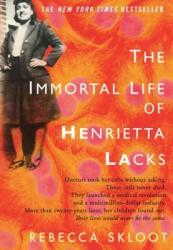
The Immortal Life of Henrietta Lacks, written by Rebecca Skloot, is a book detailing the life of Henrietta Lacks. Henrietta Lacks unknowingly donated her cells to one of the most important fields of research, cancer cures. Her tumor cells, also known as “HeLa”, are extraordinary in that they replicate fast enough to create a whole new human in under 48 hours. This book is fascinating in more than one way: it explores the history of her and her cells, and it explores some gray areas in rights to cells and parts of dead entities. Instead of focusing just on one topic and one family, it expands to include many that have had to deal with bio material rights. I personally found this an interesting but slightly disturbing read. I recommend reading this one to learn about the history of cell rights and their gray areas.
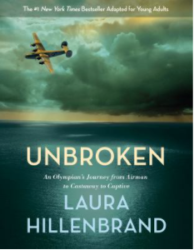
Unbroken (teen version) is a well crafted biography written by Laura Hillenbrand. Unbroken tells the story of Louie Zamperini, an Olympian and bombardier of World War II. Louie was mischievous and trouble-making as a young boy until his older brother, Pete, introduced him to running. As Pete urged Louie into the sport of running, Louie began to desert his old ways and commit himself to running. Louie soon was at the top of his school in running, setting new records and winning numerous races. Louie’s skill carried him all the way to the 1936 Berlin Olympics. Reaching the strongest point of his life, Louie hoped to travel to Tokyo for the following Olympic games. Unfortunately, terror came and his dreams were to be put on hold. World War II struck, causing Louie to enter into the Army Air Forces as a bombardier. Louie and his team of airmen faced many near death experiences. Although these were blood-curdling situations, none would compare to what Louie was soon to face. On a rescue mission in May of 1943, Louie’s plane crashed. The crash led to a terrifying and unfathomable journey on which Louie survived life on a raft and the wrath of Japanese guards of the POW camp he resided at. Louie went through incomprehensible pain from being beaten by his captors, having to perform forced labor, going through starvation, and constantly battling a sickness. He was also robbed of his self-esteem and was treated like he was worthless. Consequently, Louie’s story is breathtaking and intriguing. Unbroken provides insight on the torturous lives of POW during WWII and the determination and perseverance of many during WWII.
I highly recommend this book to anyone who is a WWII buff, history lover, or is in search of a thrilling and breathtaking story. I enjoyed it because I am interested in learning about World War II and I found the book to be moving. Unbroken is fascinating and is not dull or boring. The book will leave you wanting more and you will find it hard to put it down. However, I found the beginning part to be a bit uninteresting and tedious, as it told about the planes and equipment for World War II. Once that part is over, though, the book is quite exhilarating. I would caution that younger children should not read the book, as there are some graphic and gruesome scenes of how the POWs were treated. I would suggest the book for teens between the ages of 13-16, since there is an adult version of the book for those older than these ages.
Unbroken is one of my favorite books, and anyone who is interested in history or is seeking an electrifying story should read it.
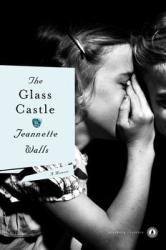
The book The Glass Castle is an autobiography by Jeanette Walls, going through her hectic life and how she handled everything. I liked this book, but it's about a really sensitive topic, and it could go through a lot of overwhelming and gross details towards the middle of the book, so I recommend for more sensitive readers not to read this. I picked this book because I saw that we had to read it in school, so of course, I wanted a little peek of what it was about. The start of the book was more calm, but readers could start to tell that her family isn't the way it's supposed to be. Throughout the book, there will be a lot of surprising and unexpected events, most not very wanted. I wouldn't say I "enjoyed" the book because that would sound wrong, but I felt the need to keep reading, seeing what happens next. I feel like a lot of students could relate to Jeanette. Maybe our conditions might not be as bad as hers, but readers could feel luckier and safe to be living a better life. But overall, I do recommend this book to less sensitive readers.
Reviewer Grade: 10
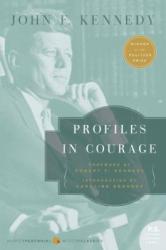
This book contained a lot of wisdom from a president’s point of view and was a very useful insight into his perspective. I appreciated the many different stories about many different historical figures and their trials, however, i did notice a strong bias against others and their perspectives. If i was to recommend this book to someone else, I would advise them to be careful about taking every word he says to heart, as he doesn’t phrase things from a neutral perspective. Overall i enjoyed the book, but it should be read by people looking for insight, not as an entertaining or exciting book. Though it may not have been thrilling or suspenseful, overall it was really good.
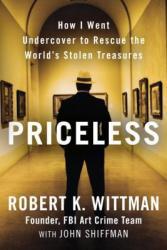
Are you a fan of true crime novels? Do you just love the excitement, the suspense of solving mysteries? Or do you like art and the masters like Leonardo de Vinci? This book is for you. Well on the outside this book might just seem like another true crime story it is really different. I always liked crime novels and tv shows and I was and still am interested in the work organizations like the FBI do to prevent crime. This book has a different approach to your classic true crime novel by not just focusing on how the FBI solves murders but by focusing on how one man (the author) went undercover in the FBI to help recover some of the world's most famous stolen art pieces. It centers around his life and shows other things than just his cases, like how he was suspected of killing his friend. It also tells the story of how he founded the FBI's Art Crime Team. Well this book may not be for everyone if you like a good true crime book this book may work for you. It is slow in parts but makes up for that by telling stories that seem absurd to realize actually happened.
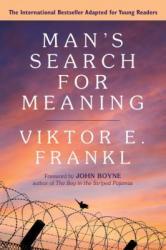
Man’s Search for Meaning gives a rare perspective on life during the Holocaust. Psychiatrist Viktor Frankl was forced into four different labor camps during WWII, and ultimately survived, while his family members were all slaughtered. Most books from the Holocaust are centered around horror stories from prison camps, and the sheer brutality of one of human history’s most devastating genocides. Frankl gives the psychiatrist’s view on life after camp and works to answer one essential question - how do we move on from grief? He recounts the moment he was free to leave as confusing - almost more shocking than freeing. What do you do after your entire family is killed? Where do you go after being released from a death camp hundreds of miles from home?
The book’s storytelling is devastating and beautifully crafted, and its exploration of humanity’s search for lives worth living - lives significant for the individual - has become one of America’s most influential pieces of literature. The book is heartbreaking, but so is any story worth telling. It has everything to be expected from such a terrifying chapter in our history, but what makes it so unique is the way it addresses life after the terror ends. Anyone wanting to search for meaning in their own lives, or at the very least get a new perspective on the Holocaust, needs to read this.

After reading If I Understood You, Would I Have This Look on My Face? , I decided to add some other Alan Alda books to my reading list. Months later, I finally got around to listening to the audiobook for Things I Overheard While Talking to Myself. I appreciate that Alda was the narrator, as he already has such a great voice for narration. That being said, there are a few aspects of this book that were likely lost in the translation to audiobook format.
As a celebrity, Alan Alda was invited to speak at many graduation ceremonies for many decades. This book is a collection of some of the speeches he gave at these events. While there are certainly gems of wisdom spread throughout this book, many of the same points are reiterated from speech to speech, making it slightly repetitive after a while. Also, if you don't happen to agree with some of his political views, you might not find some of the speeches particularly interesting. Despite all this, if you can glean some useful advice out of these speeches, then it was worth the read.
One thing I had trouble distinguishing in the audiobook version was where the speeches started and ended and where Alda's reflections and asides started. I would occasionally notice an echo in the recording, which likely indicated that it was one of his speeches. I think the echo was trying to replicate the sensation of listening to Alda in a large space (like the ones used for graduations), but it was so faint as to be indistinguishable from the rest of the book. I appreciate the attention to detail, but it could have been a little stronger.
Some useful graduation advice from Alan Alda, I give Things I Overheard While Talking to Myself 3.5 stars out of 5.
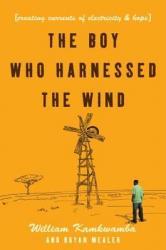
This book is one of the most inspirational stories I've ever read. The journey put forth, following William, is truly a gem that makes you think about what could've happened if something had been different. I loved reading it because I felt every details of William's journey to develop his windmill that put him on fame. His determination to prove that science is 'real' and can make a difference, especially during a time and in a culture that rejects it, shows his character and his want for a better life in his land. He perseveres through the struggles of drought and hunger, and overcomes the ridicule thrown from all sides to be able to rise up and rise above, and make his visions come true. A really inspirational story, that shows a hero's journey in a way not usually thought.
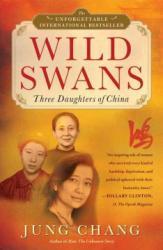
Jung Chang recalls the experiences of her grandmother, her mother, and finally herself, all in distinct eras of China in Wild Swans. While the book is about Chang's family and the hardships they faced under changing authorities, the account is just as much about the consequences of ideologies, and how our loyalties shape who we are. Chang describes the brutalities of Japanese occupation, as well as the callous nature of China under Mao Zedong. The book is slow at first but becomes thrilling with the rise of Mao, and Chang's detailing of life under Communism. Highly recommended for those interested in learning more about China in the twentieth century.
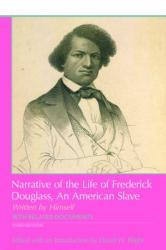
The Narrative of the Life of Frederick Douglass, an American Slave by Frederick Douglass illustrates Douglass's life during slavery in Maryland and his attempts to make it to freedom. This narrative demonstrates the horrific situations/events and the terrible way slaves were treated throughout the time period of slavery way deeper than the average history text book. The narrative is extremely informative about life's of slaves since it goes into specifics about slaves being born, their living quarters, amounts of food, the masters, etc. It is very difficult to relate to or know exactly how a slave was treated in this time period; however, this book allows readers to understand the hideous and fearful actions that were taken against these human beings. This narrative brought tears to my eyes and shocking expressions to my face when reading certain real events that took place. Overall, I really enjoyed this book and it was extremely well written because it allowed me to see more than what is taught in an American History class because Frederick Douglass goes so in-depth about his experiences in slavery throughout the narrative.
Reviewer grade: 11
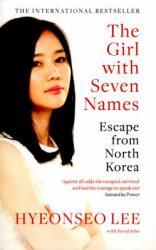
Hyeonseo Lee is a young woman who was able to escape North Korea after years of determination and courage. Lee explains in great detail the brainwashing she and all other North Koreans have gone through and how they continue to be treated by their oppressive government. She also offers an insight into the daily life of a North Korean and thoroughly explains that the indoctrination is not the fault of the people, but the tyrannical governments. At the young age of 17, Lee must leave everything she has known behind as she escapes on her own and makes her way across the North Koreans and Chinese border (intending to make South Korea her final destination). While on the run, Lee realizes that her journey may not be as easy as she expected. Following her successful mission, she is able to flourish even more than she originally envisioned. As you read this book, you'll finally learn why she came to be known as "the girl with seven names."

Permanent Record is the memoir of Edward Snowden life. Snowden was the man who exposed and leaked how the US government used mass surveillance on enemies but also US citizens. Snowden knew so much of this system as he
was a former employee of the CIA. I choose this book because it's nonfiction and about an important event that happened recently. I also chose Permeant Record because I love reading about politics and government. This book
definitely surprised me because of Snowden's reasoning and motivation of why he did what he did. I liked Permanent Record because the readers get a first person perspective of the events that unfolded. Although I liked the book, I
disliked how Snowden's actions endangered the lives of several American spies, and other government officials.
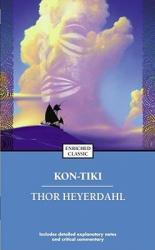
Kon-Tiki is a novel about a group of men who sail across the ocean on a polynesian raft with the bare necessities for life. Using barely any modern resources, like a GPS or Emergency SOS, they set sail in the early 1950’s. They wanted to prove that it is possible to sail to polynesia in a raft. The beginning was a little rough for me, as it was about the preparation, the, and the support behind the project. I disliked them going into so much detail about the raft they were trying to copy. They were trying to copy the exact rope, the exact bamboo, the exact position of launch, and the exact shape. If you are a story lover like me, it starts out rough, but it turns into a fabulous journey towards the middle. I enjoyed this book because of the sense of adventure and the sense of
exploration. It describes the adventure of meeting the Whale Shark with a passionate sense of adventure, describing the people on board being panicked at first, then treating it as a kind of puppy. This is a favorite of mine, due to the fact that the adventure was both interesting and thrilling. I recommend this book to anyone that is looking for an adventure on the sea.
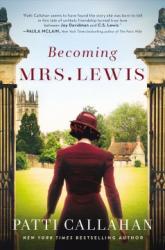
f you are a fan of C.S. Lewis, and perhaps were introduced to Joy Davidman through the movie, "Shadowlands", this in-depth look at her life, and struggles before she first began her correspondence with Lewis. Already a prolific poet and writer, Davidman was extremely well-educated and had been a child prodigy. This is an evocative account for her search for God, her quest for peace during a strained first marriage, and ultimately, coming to terms with the illness that took her life after finding fullflling love with C.S. Lewis. The book is well-researched, but is a novel that is written in the first person.
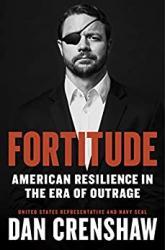
This book is fantastic! Dan Crenshaw offers brilliant advice on mental toughness and how to combat the outrage culture with critical thinking. Crenshaw's methods are simple, easy to practice, and are what is missing in today's society. Written from his life experiences of being a Navy SEAL and United States Congressman, Crenshaw makes this book relatable and applicable to everyone's lives. Crenshaw also cites many articles, studies, and medical experts to backup his advice. I highly recommend this book to anyone who wants to become a well-informed voter, contributing citizen, or successful person.
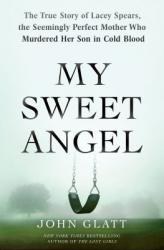
John Glatt does a great job in laying out this heinous murder, based on a true story. Managing to lay out a timeline with both moves and medical complications, Glatt exposes a mother who went to great lengths to do everything she could to create publicity for her sick son. The photos in the middle of the book, as heartbreaking as they are, make a much heavier impact if you wait until you've completed the book to look at them.
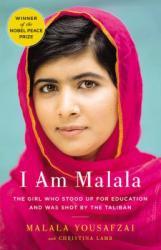
"I Am Malala" was a pretty great book, and is now one of my personal favorites. It did not take me long to read and is good for anyone ages 12+. This book does contain some sensitive contents and might not be great for younger kids, unless the parents are okay with harsh and sad topics in the Middle East. The book does not contain a whole lot of content on what goes on in that area of the world, and it mostly focuses on Malala and her story. Malala is a young teen from the Swat Valley in Pakistan. She was raised peacefully, but the Taliban soon started to take over the area. The Taliban started like a little seed, but grew into a giant weed that basically controlled everything. They eventually made it so girls were not allowed to go to school, and women were not aloud out of their house unless they are accompanied by a male relative. Malala would not put up with this, for she has a desire to learn and know answers to her questions. She is the daughter of the principal of her school, and grew up admiring the students that attended. After surviving a bullet to the head, months in the hospital, and a move to England, Malala becomes activist and stands up for girl's rights and
her belief that everyone has the right to go to school. I liked this book because Malala is a great role model and author. She really provides a strong figure for any girl growing up in this hectic world. This is definitely one of the best books I have read and I am sure I will read it again in times to come. Any girl (or boy) can relate to Malala because she described herself as being an ordinary girl that wanted to see change in the world. She shows that anyone can adjust their view on the world if they just use their voice to speak out. I absolutely suggest this book to someone if they are looking for a fairly quick read!
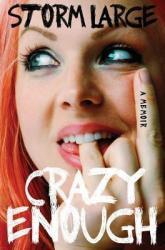
This raw and honest memoir is a great mix of entertainment and powerful introspection. Storm Large has spent her wild life with a deep seated fear she will turn out like her mother, who was institutionalized many times for mental illness. Then there's her sex addiction. Definitely not a book for kids or teens. Overall, I recommend this quick read to those who like to read about the wilder side of life and are interested in mental illness.
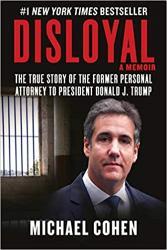
Disloyal is a personal account of Michael Cohen's time as President Trump'spersonal attorney. Cohen describes in depth about his various experiences as serving as Mr. Trump's personal attorney and adviser. Cohen goes into detail about things and topics that the mainstream media does not report on. I liked this book because of how it it was a personal and first hand account from working in the Oval Office and with President Trump. I choose this book because I am very interested in politics and learning more about happens behind closed doors. This book was surprising and not at all what I was expecting. I would recommend this book to anyone who enjoys reading books about politics and political leaders.
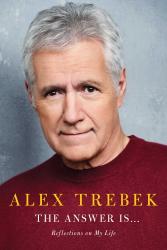
The Answer Is by Alex Trebek is a well crafted autobiography and masterpiece. Alex Trebek is the beloved television host of Jeopardy and he reflects on his life in this book. Trebek goes into further details about his personal life which he has rarely discussed with anyone. Trebek also mentions his tough battle with stage four pancreatic cancer. I choose this book because I have always been a huge jeopardy fan since I was 5 and I wanted to learn more about this great man. I really liked this book because of all the great moments that were highlighted. I also really liked the very truthful and honest reflections that Trebek gives about his own life. My hope is that more people will read 'The Answer Is' because it is excellent read and it's about a legendary figure that we tragically lost this past year due to cancer.
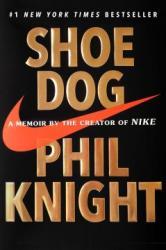
Shoe Dog by Phil Knight is a book that you do not want to miss out on! This book is a memoir about the life of Phil Knight, the founder and creator of Nike. I really liked this book because I love Nike shoes and I am also very passionate about starting my own business someday. So this book gave me a lot of encouragement and motivation to start a business. Shoe Dog goes in depth about all the challenges Phil endured to create the empire that Nike is today. I choose this book because it seemed interesting to get the experiences as well as the ups and downs endured in the process of trying to create a world famous brand. I would highly recommend this book to anyone dreaming of becoming a successful entrepreneur!
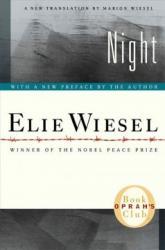
The autobiography Night by Elie Wiesel is a gripping nonfiction retelling of his experiences during the Holocaust. Starting with Elie’s normal life before World War II and continuing onto the horrors of the concentration camps. Elie was a young boy growing up in the town of Sighet, Romania when he was taken to a concentration camp with his family. The book saddens me every time I read it. It draws the reader in and makes them feel as though they were there, starving in a camp or trudging across the frigid wilderness with no end in sight. I would recommend Night not because it makes the reader happy but because it is the best depiction of the horrors of the Holocaust.
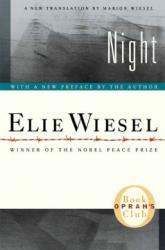
I had to read this book in English class Freshman year. I honestly wasn't expecting to like it as much as I did. It's a true story called "Night" written first hand by Elie Wiesel about the Holocaust. It's about a young boy and his family that got sent to Auschwitz and Buchenwald concentration camps. This book is extremely well written, and is a really sad story. There was one part, I won't spoil it, but I couldn't stop crying. "Night" really gives you a look at what it would have been like to be in Elie's shoes. Overall, of course this is quite a sad book, but I would highly highly recommend!!
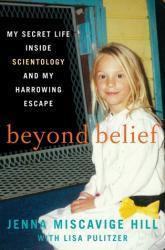
This book is very informative, albeit slow paced. I learned a lot about Scientology and its disturbing practices. If you're looking for a fast-paced nail biter of a memoir, this isn't it, but if you want to learn about what Scientology really is, then give this book a try.
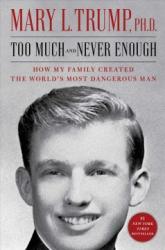
Too Much and Never Enough is a memoir written by Mary Trump. She is the niece of our current president. This book extensively describes the several interactions that Mary Trump had with her uncle. In this book she blames the behaviors of the Trump family for negatively influencing Trump's personality. Also, she describes in depth about Donald Trump's role in the multi-billion dollar family business. She also expands upon the Trump family's political connections, which lead to the creation of a real estate empire. Mary Trump explains the several high expectations that Fred Trump held for his children. This book was well-written and used excellent vocabulary words to express her opinions. Too Much and Never Enough kept my attention as it was interesting and this book gave an insightful perspective about Donald Trump from an insider's point of view. Finally, I liked how Mary Trump elaborately explained each of the Trump children’s lives and the turmoil within the family during tough times of the business.
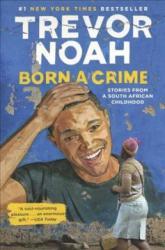
Born a Crime is an autobiography about Trevor Noah's life. I picked this book because it describes the humble beings of a
famous comedian and his extraordinary journey to the pinnacle of American comedy. It describes his life growing up in the apartheid government in South Africa. The title of this book refers to the fact that Trevor Noah's birth was actually a crime. This is because of his biracial background, which made his birth illegal under apartheid laws. Born a Crime is filled with jokes and will not fail to crack its readers up. I would highly recommend reading this book if you love humor and learning about valuable life experiences of famous celebrities.
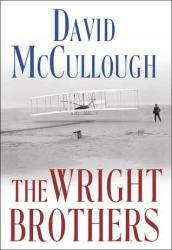
Wilbur and Orville Wright changed history in 1903 when they successfully built the first heavier-than-air powered machine that could fly and carry a pilot. Many people are familiar with the Wright brothers, but few know the full story of their quest to build the first flying machine and prove to the world that they were not far-fetched fanatical dreamers. Writtenusing Wilbur and Orville Wright's letters, diaries, technical data books, documents, proposals, and private family papers, this book gives great insight into the curiosity, intellectual ability, diligence, and determination of the brothers. This book is well-written, readable, and exciting, yet still incredibly factual. I highly recommend this book for anyone fascinated with aviation, engineering, or the quintessential American spirit.
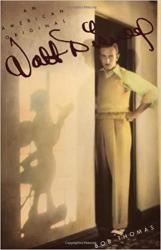
An American Original Walt Disney by Bob Thomas is a masterful biography which tells the story of the man who created Mickey Mouse, along with one of the largest entertainment franchises the world has ever seen. It describes how Walt started as a small-town cartoonist, went through bankruptcy, had his work stolen, and even borrowed money on his life insurance to make his ideas become reality. It was fascinating to see how things like Disneyland and Mickey Mouse originated. While some biographies are extremely dull, this one captivated me from the start. It is written in a way that makes it easy to experience what Walt and his company are going through, whether it is success or failure. Entertaining as well as factual, this book is one of my favorite biographies. I would give this book five stars and would recommend it to anyone who would like to read about one of the most interesting men in the world.
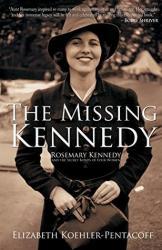
Tragedy ran deep in the Kennedy family--so much so that some people even questioned if the family was cursed. Rosemary Kennedy was born in 1918. At the time of her birth, the hospital was overcrowded with victims of the Spanish flu. The nurse, who though perfectly capable in assisting Mrs. Kennedy to give birth, urged her to wait until the doctor could come. The baby, Rosemary Kennedy, was forced back inside her mother's birth canal for two hours by the nurse during the wait. This irregular birth led to lifetime consequences in Rosemary. She had learning disabilities. Despite this, she was pushed equally as hard by her parents. Rosemary never made it intellectually past the fifth grade level. Her condition affected the Kennedy family because at the time people with disabilities were seen as having a "bad gene" and were not even allowed to receive the sacraments or eucharist at the catholic church. As Rosemary's condition worsened, her parents were desperate to fix her before she "ruined" her brother JFK's political career. This story is unique because it sheds light on a member of the Kennedy family whose tragic story eventually brought positive change in how to deal with the disabled.
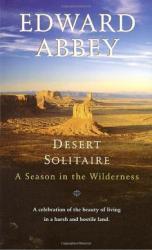
Desert Solitaire, written by Edward Abbey, is essentially a memoir of his time spent as a ranger outside of Moab, Utah, in the Arches National Park. It includes compelling commentary on the progression of industrial tourism, as well as life changing events and exciting stories. For some, the book may be a frustrating read, either because it lacks a linear plot, as a collection of journal entries and secondary memoirs, or because Abbey’s views are reminiscent of traditions from the 1930s. Abbey is aware of this, and begins the book with a series of disclaimers. For readers who enjoy beautiful writing about life in the West, Desert Solitaire should be a potential read.